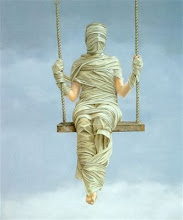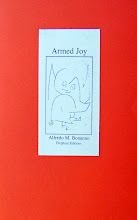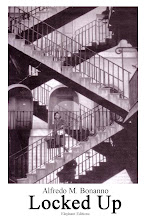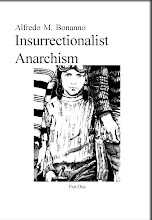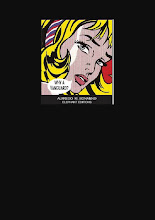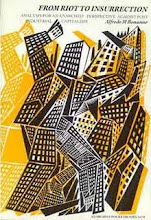Wild Destruction
A word alongside another. A sound lost in the deafening noise still known as language. A word different to others. A hiss amidst
the shouting. A breathe of noise from which to move in search for new meaning in a world where everything has been said. A word
different to and against others, which does not inhabit the space of opposition between concepts, but the silence that preceeds and
accompanies them.
A word, finally, which does not refer to itself, but which instinctively apprehends that area where thought can move freely in
silence, where the sense of one’s singularity grows along with the desire to rebel against everything that suffocates it.
A paper different to those which, in this civilty of collective identity and reciprocal belonging, want to affirm their own nature of
“strangers everywhere”, refractories to all countries (including the world as a whole).
Wild, like the thought and life of the cynics, those Greek philosophers who, full of scorn towards the regality of a philosophy
addressed to supporting Power, used the image of the dog as their symbol (kzon in Greek), in sign of the refusal of hierarchy, social
restraints and the claimed need for laws. Recompensed, as is the sort of all free spirits, with censureship and mystification. “Cynicism” in
our language (which sells itself off as neutral but which is incapable of concealing its Christian origins) has become synonymous with the
gaudente indifference to the suffering of others, so that policing of ideas which flows subterraneously throughout the centuries has
liquidated a line of thought which supremely did not give a damn for gods or law.
Demolisher, as the congenial pun suggests (Canenero means, “sing o Nerone”), and the paper wants to be this as well.
So that desire for extraneousness does not become resigned self-mutilation, but arms itself against all forms of authority and
exploitation.
Because from the power of the dialogue (which one tends to think can resolve everything) and the dialogue of power (which
invites everyone to reasonable agreement) one passes to a feeling of radical enmity towards the existent, the destruction of every
structure which alienates, exploits, programmes and regiments the lives of individuals. The black of the dog (this animal usually associated
with the idea of submission, of servile docility) is precisely the will to come out of the herd of voluntary servitude and open oneself out to
the joy of rebellion. Not the black where all cows are equal (even when “against” or “outside”) so much as that where the border between
demolition and creation, the extreme defence of oneself and the construction of relations of reciprocity with others.
A paper - to rebuild a mosaic from a thousand possible meanings - of wild destruction, meaning with that the possibility of
passing to the attack of the State and dominion in all its manifestations without (to use a well known expression) swearing on anything,
be it flag or organisation.
As individuals, always, even where the irrenouncible desire for the other leads us to choose the road of unity.
A LIFE WITHOUT CRUTCHES
We are so used to the idea of the State, that if it were, as a punk song said a few years ago, to cut someone’s leg off, they
would not rebel but wait to have the other cut off, in order to thank them for the crutches.
The crutches distributed daily to invalid bodies are many. Pensions are one of these. The State gives nothing, because it has
nothing of its own. All its concessions are no more than partial restitutions of what has been alienated and usurped from individuals by
force of the law and its guardians. Yet the law wants everyone to to ask for some back again. Crutches. Queue up to
collect them, pay those who organise their distribution, ask for prisons and policemen for those who take them without their legs really
being broken or for those who, being able to do so, hide a batch of them away.
Not so for a seventy year old peasant farmer. Although he has been due for a pension for some time, he refuses to collect it. I
don’t want anthing from the State, he insists, regardless of the caring advice of family, doctors, friends, doctors and priests. No matter
how malformed he prefers to walk with his own two legs. In the midst of so many who are ready to sell themselves for some miserable
concession, this is a choice of rare and solitary dignity. Not a penny, I’ll get by myself. Not a sou, in the queue please gentlemen.
BUDDHISTS WANTED
An advertising agency in Leghorn has advertised in the local paper for personnel with a good knowledge of French and English, but who
must be buddists. The reason given for this prejudice are listed by the firm directors. Buddists have certain qualities: resistence against
intellectual fatigue, ability to concentrate, ability to keep on good terms with others, the gift of interior serenity and introspectiveness.
In fact it is not a stupid choice. Buddists, most of whom are recruited among the disillusioned ultra left (in the first place
themselves) guarantee perfect obedience to the orders of the company they work for, a spirit of adaptation, and above all, no subversive
attitudes or hints of social struggles.
If the teachings of buddism, even in the diluted version imported from Japan, are the refusal of desire as being the cause of
pain, it goes perfectly well with the bosses’ desires to give orders and exploit which (the buddists are sure) in future will cause great pain
to the bosses themselves, so they are to be commiserated with rather than fought.
And, as for the firm director, what better choice could they make?
NOTHING ELSE TO DO
All he did was clap his hands, it was fun. Nathaniel, four years old, a pupil at a Birmingham primary school, was really having a
good time. His master of authority had tried to shut him up, but there was nothing she could do about it. Tellings off had no effect on him,
he just began making a noise again. so, tired of his childish rcket, she tied his hands together. But not out wickedness, no, to prevent him
from hurting himself.
But he, little pest that he was, carried on regardless. What could she do, the poor woman? What could she do but tie up his feet
as well, and finally gag him with sticky tape?
All the diatrabes of pedagogy are all very well, about the beauty of children, their candor and innocence, but there’s a limit to
everything. It is understandable that being with children comes to be considered far more than simple work, almost a mission. But not for
this can it become a life sentence. And don’t think that just because you’re a child, four years old and ill to wit, you can get away with
anything you like. No, that would be too easy and certainly not educative.
WORDS OUT OF PLACE
“Bet I’ll shoot you?” these are the words of a carabinieri to an eleven year old gypsy boy, Tarzan Sulic, arrested along with a thirteen year
old cousin, accused of stealing in an appartment. No sooner said then done: the carabinieri won his bet. He shot the boy in the head and
wounded his cousin, the only witness to the crime that took place eighteen months ago in the barracks at Ponte di Brenta, near Padova.
Last Friday the court of Padova, presided over by infamous Judge Aliprandi, sentenced carabinieri Valentino Ziantoni to one year,
six months and five days suspended sentence. In fact the court accepted the request for a negotiated sentence made out by the
accused’s lawyers, a request that was naturally granted by public prosecutor Cappelleri. As soon as the sentence was read out the little
boy’s family and the many comrades present began to protest. Police intervened to clear out the court.
In the face of such episodes any comment, any criticism, any word at all seems out of place. Here there is absolutely nothing to
be pointed out. It is time to leave human disdain and faith in the law alone. Let’s forget about the triumph of truth and the denunciation
of the wickedness of others. For the law the case of Tarzan Sulic is closed.
And for us?
skip to main |
skip to sidebar

Some writings of Alfredo Maria Bonanno in English, or almost

Alfredo Bonanno was arrested on October 1st 2009 in Greece, accused of concourse in robbery. With him, anarchist comrade Christos Stratigopoulos.
Here are a few translations and part translations of a small portion of Alfredo's writing. This is a work in progress, many of the translations are as yet incomplete. Open links to find more of Alfredo's work.
Alfredo Bonnano Released
Nov. 22 Alfredo Bonnano was sentenced to 4 years imprisonment (which practically means that with the time served so far and the fact that he is over 70years old HE IS RELEASED
Christos Stratigopoulos (who took responsibility for the action)
was sentenced to 8 years and 9 months with the Greek law will probably be released at the end 2011
BY ANY MEANS NECESSARY
LINKS
click on any of these labels to read text
- "Community" sickness
- 1981 - Editorial
- A Critique of Syndicalist Methods
- A few notes on Sacco and Vanzetti
- A few notes on the revolutionary movement in Italy
- A little man in Singapore
- A million jobs
- A question of class
- Affinity
- After Marx autonomy
- Albania Laboratory of Subversion (Introduction)
- Anarchism and the national liberation struggle
- Anarchists and action
- AND WE WILL ALWAYS BE READY TO STORM THE HEAVENS AGAIN (Against amnesty)
- ANTI-INSTITUTIONAL MOVEMENT
- Are we modern?
- Armed Joy
- ARMED STRUGGLE. SOME REFLECTIONS.
- Autonomous base nuclei
- beyond syndicalism
- Beyond workerism
- But what is the imaginary?
- Class War
- Comiso - Organizational document of the self-managed leagues
- Considerations on illegality
- Dissonances (Introduction)
- Elephant Editions 1986
- Excluded and included
- Farewell to claiming
- Feral Revolution (Introduction)
- FICTITIOUS MOVEMENT AND REAL MOVEMENT
- For an Antiauthoritarian Insurrectionist International - Proposal for a debate
- From riot to insurrection
- From the centre to the periphery
- Good technology
- Guerilla Extraordinary
- Habits and idols
- Hegel
- I know who killed chief superintendent Luigi Calabresi
- Illegality
- Illness and capital
- Informal organisation
- Insurrection
- Internationalism
- Introduction to Sabate
- Introduction to Anarchism and Violence
- Introduction to Bratach Dubh English edition of Malatesta's Fra Contadini
- Introduction to Insurrectionalist Anarchism
- Introduction to Strange Victories
- Introduction to The Conquest of Bread
- Involuntary aspects of voluntary work
- Let's destroy work
- LET'S DESTROY WORK. New introduction
- Let's keep our feet on the ground please
- Lightening Conductors and Stand-ins - more shots of non-news
- Lightning Conductors and Stand-ins
- Lightning Conductors and Stand-ins (cont.)
- Locked up
- Looking forward to self-management
- Loss of language
- More on internationalism
- National Liberation Struggle
- nineteen years on
- No more crises
- Non-news about drugs
- Non-news about racism
- Ode to the Uniform
- On Feminism
- One's life on the line
- Order and chaos
- Otto Ruhle (Introductory Note)
- OUR ROLE IN THE PRESENT CONFLICT
- Palestine mon amour
- Pantagruel anarchist review
- Pinelli
- Prison and Prisoners’ Struggles - Introduction
- Propulsive Utopia
- Quality and the factory
- Restructuring Capital and the new democracy
- Revolution - Violence - Antiauthoritarianism
- REVOLUTIONARY VIOLENCE
- Science and the social revolution
- Self-management
- Severino Di Giovanni in Argentina 1923-1931 by Osvaldo Bayer
- Social banditry
- SOME NOTES -
- Space and Capital
- Stirner
- Stop the City? From information to attack
- Strategy and Methods
- Streamlined production
- The "end" of the crisis
- The aesthetics of anarchism
- The anarchist tension
- The area of autonomy and the anarchist movement in Italy
- The armed wing of science
- The Cruise missile base at Comiso can be prevented
- The ethical bank
- The insurrectional project
- THE LANGUAGE OF TECNICS -
- The logic of insurrection
- The moral split
- THE NECESSARY DESTRUCTION -
- The priority of practice
- The refusal of arms
- The revolutionary project
- The revolutionary struggle
- The significance of an insignificant event
- The struggle for self-managed social space
- The tyranny of weakness
- The whole and the part
- The young in a post industrial society
- Theory and action
- Towards anarchist antimilitarism
- TOWARDS THE GENERALISATION OF ARMED STRUGGLE
- TRANSFORMATION IN THE WORLD OF WORK AND SCHOOL -
- TRUTH -
- Unemployment in Italy - How come everything doesn't explode?
- Untitled
- Violence and non-violence
- What are anarchists
- What can we do with anti-fascism?
- Why a vanguard?
- Why Insurrection
- World domination in a few words

